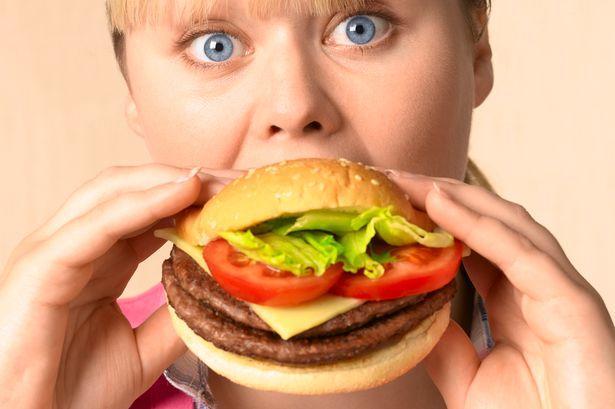what to do if you overeat, how to treat overeating and gluttony
 Overeating is an eating disorder in which a person eats large amounts of food and cannot stop in time. This is an uncontrollable condition that is fraught with excess weight gain, physical and psychological disorders.
Overeating is an eating disorder in which a person eats large amounts of food and cannot stop in time. This is an uncontrollable condition that is fraught with excess weight gain, physical and psychological disorders.
The content of the article:
- What is overeating – types, reasons
- Overeating symptoms in adults and children
- The harm of overeating – the consequences
- What to do if overeat – first aid
- How to deal with systematic overeating
- Do overeating and gluttony need to be treated

What is overeating – types, reasons for overeating
Human eating behavior means individual food preferences, diet, diet. Its formation depends on the social, cultural, family, biological factor.
Binge eating – an obsessive state, which is associated with the uncontrolled consumption of large amounts of food.
Eating disorders are classified as follows:
- Anorexia – a syndrome in which the patient has no appetite at all.
- Bulimia – regular bouts of overeating, in which a person is overly concerned about body weight and can artificially induce vomiting to cleanse the gastrointestinal tract.
- Compulsive overeating – an eating disorder, excessive food intake in response to stressors.
Generalizing characteristics for all types of eating disorders are fear of gaining weight, severe self-restrictions in food intake, which are replaced by uncontrolled consumption of food in large quantities.
There are several broad groups of reasons for overeating:
- Psychological: depressive disorder, increased anxiety, sleep disturbances, work and rest, feeling of loneliness.
- Social: comes from childhood, when a sweet or a favorite dish is a reward for success, good behavior.
- Physiological: hypothalamic dysfunction, genetic mutations, decreased serotonin levels.
Psychologists note a direct link between the intention to follow a strict diet and compulsive overeating. A person strives to eat as much as possible before limiting himself in food.

Overeating symptoms in adults and children
Food abuse can be both one-time and regular. With a one-time excess of the portion, the clinical picture appears immediately.
Symptoms of overeating in adults and children are similar:
- Overcrowding in the abdomen after a meal, pain, discomfort, nausea.
- Fast, inconspicuous consumption of a large portion of food.
- Deterioration of mood, a sharp decrease in self-esteem, depression after another bout of overeating.
- Eating food without feeling hungry;
- Gain and constant fluctuations in body weight.
People who are prone to overeating prefer to eat alone because they feel overwhelmed and ashamed of the portion size. The diagnosis is made when the patient marks the coincidence of 3 or more of the provided items. After that, the body weight gain is analyzed: the initial weight before the stressful situation and the indicators at the time of communication with a specialist. If the body mass index is exceeded, the diagnosis is confirmed.
The harm of overeating – why overeating is harmful, what the consequences can be
Systematic overeating is fraught with excess weight gain.
With visceral obesity, metabolic disorders develop:
- Insulin resistance.
- Hormonal disruption: decreased testosterone levels, estrogen dominance.
- Endocrine diseases.
- Difficulty conceiving in men and women.
- Violation of bile outflow, organs of the gastrointestinal tract.
The lack of quality timely care is fraught with the risk of developing serious consequences of overeating: diabetes mellitus, cardiovascular diseases, hypertension, heart attack, circulatory disorders, and breathing difficulties.
Joint diseases begin to progress due to excessive stress and premature erasure of the surface of the cartilage.
An excess of fat cells accumulates in the liver, which is fraught with the development of hepatitis. The risk of developing insomnia and apnea – respiratory arrest during sleep – increases. Patients who tend to overeat are more often diagnosed with gastritis, cholecystitis, pancreatitis, potency and menstrual irregularities.

What to do if overeat – first aid to yourself and others
Nutritionists explain in detail what to do when overeating:
- Physical activity: After eating a large portion of food, walking in the fresh air is recommended. This helps to speed up metabolic processes, facilitates the process of digesting food, and reduces hypoxia.
- Applying heat to the area of the liver, gallbladder: a heating pad or a bottle of warm water helps to activate the digestion process.
- Limiting food, alcohol, carbonated drinks. Re-eating is possible only when you feel severe hunger, after digesting the previous portion and emptying the intestines.
What to do if you overeat: medication support:
- Sorbents: Activated or White coal, Smectu, Enterosgel, Zosterin. The active substances of drugs remove toxic substances, help fight the processes of decay and fermentation in the stomach. It is necessary to observe an interval of at least 1.5-2 hours between taking sorbents and other groups of drugs.
- Enzyme preparations to reduce the load on the pancreas: Pancreatin, Creon, or herbal medicines (extracts, papaya, pineapple).
- Drugs that normalize the outflow of bile: Hofitol, Artichoke, Silymarin, Allohol.
Pharmacotherapy is recommended to be used by prior agreement with the doctor. Enzyme medicines and means for normalizing bile outflow should always be at hand so that they can be used immediately after overeating.
How to deal with systematic overeating – doctor’s recommendations
With systematic food abuse, an integrated approach is used: they eliminate the root cause that causes an eating disorder, reduce anxiety, and restore sleep.
After the body has recovered, it is recommended to follow a low-carbohydrate diet with a predominance of healthy fats and protein.
Attention!
Fasting is contraindicated.
If food abuse is associated with psychological disorders, then the use of such methods is recommended:
- Cognitive Behavioral Treatment. During the session, the psychotherapist identifies the disorders that lead to uncontrolled, abundant consumption of food, provides information on how to stop overeating. The main task of such therapy is to make the person self-aware of the problem and stop feeling guilty.
- Interpersonal treatment – helps to restore contact and relationships with close people, relatives. This is often enough to reduce food addiction.
- Group support – contact with people who have faced the same addiction. Understanding the situation helps to quickly cope with their own psychological experiences. In groups, people share information about how not to overeat.
In addition to psychotherapy, can be used medicationsprescribed by the doctor.
Attention!
Medicines to reduce appetite are dangerous, do not help to get rid of overeating and have a large list of contraindications and side effects. They can only be used in isolated cases, for a short period of time and under medical supervision.

Should overeating and binge eating be treated, and how are these disorders treated?
Overeating can be associated with psychosomatic or psychological reasons. Many tend to “seize” stress, fatigue, irritability, after which they fall into even greater psychological dissatisfaction. To cope with the problem will help qualified psychologist…
In other cases, only an experienced doctor can select the treatment regimen. Sometimes it is enough to adjust the diet and introduce a sufficient amount of polyunsaturated fatty acids and proteins into it. It is the foundation of the diet that provides long-lasting satiety. At the same time, simple carbohydrates, sugar, dairy products from the store are completely removed from the diet.
It is also necessary to undergo an examination to detect a deficiency of chromium, zinc, copper, iron, and check the functioning of the thyroid gland. If deficiencies are found, compensate them under the supervision of a doctor.
For a request on how to deal with binge eating disorder, please contact nutritionists and psychotherapists… The earlier treatment begins, the more favorable the prognosis – and the lower the risk of developing the consequences of overeating: gaining excess weight, hormonal, endocrine, metabolic disorders.
What to give a friend?
Gift Certificate! You can give it to your loved one or use it yourself.
And we also give away a certificate for 3000 rubles every month. among new email subscribers. Subscribe!
Select a certificate in the store
Visit Bologny for more useful and informative articles!





